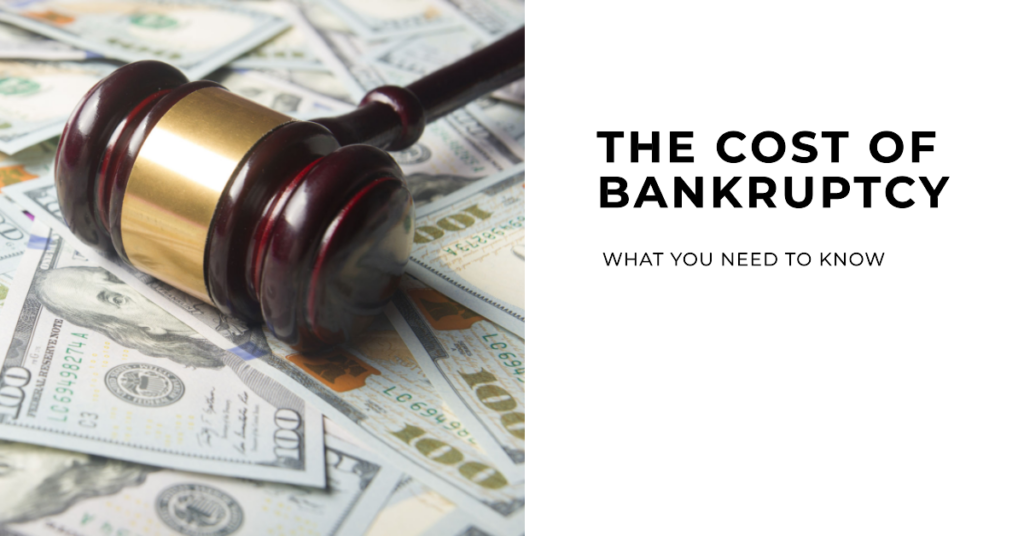Bankruptcy Counseling
Bankruptcy Counseling Fees
Pre-filing course: $49.00 per household
Post-filing course: $39.00 per household
Sign Up for Online Bankruptcy CounselingThis is just one cost element of the bankruptcy process. There are many other costs involved. Filing for bankruptcy can provide individuals and businesses with financial relief by discharging or restructuring their debts. However, the process comes with a costs. Bankruptcy fees can vary depending on the type of bankruptcy, the debtor’s financial situation, and the complexity of the case.
Important: Use the forms that are numbered in the 100 series to file bankruptcy for individuals or married couples. Use the forms that are numbered in the 200 series if you are preparing a bankruptcy on behalf of a nonindividual, such as a corporation, partnership, or limited liability company (LLC). Sole proprietors must use the forms that are numbered in the 100 series. (Source: www.uscourts.gov)
Bankruptcy Fees
Court Filing Fees
When filing for bankruptcy, one must pay a court filing fee to initiate the process. These fees are established by the United States Bankruptcy Court and vary depending on the type of bankruptcy:
- Chapter 7: The court filing fee for a Chapter 7 bankruptcy, which involves liquidating assets to pay off debts, is currently $338.
- Chapter 11: For businesses filing for Chapter 11 bankruptcy, which involves restructuring debts and creating a repayment plan, the filing fee is $1,738.
- Chapter 13: The filing fee for a Chapter 13 bankruptcy, which involves creating a repayment plan for individuals with a regular income, is $313.
These fees must be paid when submitting the bankruptcy petition unless the debtor qualifies for a fee waiver or payment plan.
Attorney Fees
While it is possible to file for bankruptcy without an attorney, most individuals and businesses choose to hire legal representation due to the complexity of the process. Attorney fees can vary widely depending on the type of bankruptcy, the debtor’s financial situation, and the complexity of the case. For Chapter 7 bankruptcy, attorney fees typically range from $1,000 to $3,500. For Chapter 13 bankruptcy, fees can range from $3,000 to $6,000.
Credit Counseling and Debtor Education Courses
As part of the bankruptcy process, individuals are required to complete two educational courses: a credit counseling course before filing and a debtor education course after filing. The credit counseling for bankruptcy is designed to help debtors understand the implications of bankruptcy and develop strategies for managing their finances going forward. The cost of these courses varies but typically ranges from $10 to $50 per course. Some providers offer fee waivers or reduced fees based on the debtor’s income.
Miscellaneous Fees
In addition to court filing fees, attorney fees, and course fees, there may be other costs associated with the bankruptcy process. These can include fees for obtaining credit reports, postage costs, and fees for hiring professionals, such as accountants or appraisers, to assist with the case. Miscellaneous fees can vary depending on the debtor’s specific situation and the complexity of their case.
Tip: Bankruptcy filing costs vary, depending on the type of bankruptcy, the complexity of the case, and other factors.
Minimizing Bankruptcy Fees
While bankruptcy fees may seem daunting, there are ways to minimize these costs. Some strategies include:
- Seeking pro bono or low-cost legal assistance: Some legal aid organizations and law schools offer free or low-cost bankruptcy assistance to qualifying individuals.
- Filing without an attorney: While this is not recommended for most debtors due to the complexity of the bankruptcy process, it can save on attorney fees for those who feel confident navigating the system on their own.
- Applying for a fee waiver: Low-income individuals may qualify for a waiver of the court filing fee. Eligibility is typically based on income and household size.
Bankruptcy fees are an important consideration for individuals and businesses contemplating this financial solution. Understanding the various costs associated with the process, as well as strategies to minimize them, can help debtors make informed decisions and navigate the bankruptcy process more effectively. It is essential to carefully evaluate one’s financial situation and consult with a knowledgeable attorney or financial advisor to ensure the best possible outcome.


